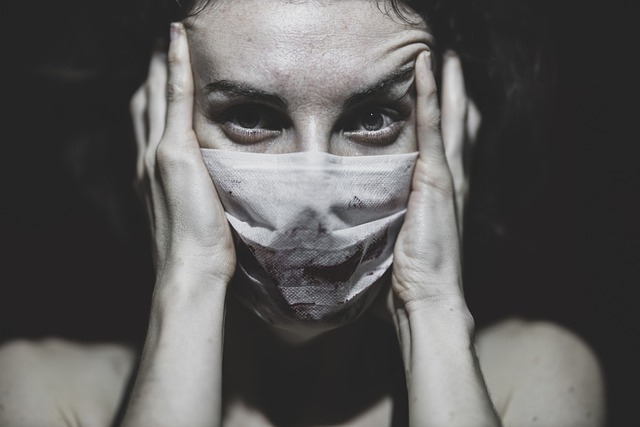Many people think that the novel Coronavirus caused disease COVID-19 affects several internal organs including the lungs, heart, and kidney. But some evidence suggested that it may also mess with your mind, according to new medical research.
The new study, which was published in December, suggested that some COVID-19 patients, with no history of mental illness, can develop symptoms of psychosis, which is a mental disorder characterized by a disconnection from reality. This mental condition can affect the way our brain processes information. Even though such severe mental illness is rare, cases are being reported all around the world.

Case Study
A San Francisco resident, Ron Temko, experienced a psychotic episode after he tested positive for COVID-19 in the spring. "I thought I had been kidnapped. I could not speak so I made a little sign for my son to go get an AK, his gun," the COVID-19 patient said.
His delirium began after he came out of a medically induced coma while being admitted at the UCSF medical center, where he was treated for COVID-19. While describing the psychotic episode Temko said, "I wanted to climb out that bed and jump out the window."
After seven months since his discharge, the San Francisco man is experiencing a painful relapse in his health condition. "Now I consider myself a long hauler. I have been very emotional, crying, upset, thinking when is this going to end?" Temko added.
He believes that the episode he experienced was caused by a combination of sedatives, which he was given at the hospital, and the Coronavirus infection. According to reports, there are other patients who have also experienced such delusions and psychotic episodes, even though those are mild COVID-19 cases and did not require medications.
What Is Happening to Patients?
Dr. Vivek Datta, a neuropsychiatrist at UCSF, where Temko was admitted, said he had seen patients who developed sudden behavioral changes. "They [COVID-19 patients] are much more suspicious of their family members. They are worrying or believe that people are trying to harm them or kill them. They believe that the nurses are talking about them or poisoning their food," he added.
Dr. Datta said that he treated many patients, who did not have a history of mental illness, for psychotic symptoms a few weeks or months after Coronavirus infection. According to the healthcare expert, such symptoms can be as or more disabling than the physical symptoms associated with COVID-19.
What Is the Reason?
Many doctors across the US and around the world are reporting similar cases. Mason Chacko, MD, clinical assistant professor of psychiatry in the Department of Consultation-Liaison Psychiatry at Stony Brook University Hospital on Long Island, New York said, "I think it is very concerning because, as you are seeing and as you are reading, there are more and more case reports."
However, according to Dr. Datta, there are some theories that could explain why people are experiencing such psychotic episodes.

The medical expert from UCSF said that as per one theory, the novel Coronavirus may be directly attacking the brain, causing the development of such symptoms. The second theory is that the immune system response, developed to fight against the virus, may have caused the occurrence of the symptom, said Dr. Datta.
"Because of how that can affect the brain that when you have an infection, we produce an inflammatory response. And some of those chemicals might be toxic to the brain if the body's immune response goes into overdrive," he added.
According to The New York Times, most reported cases of post-COVID-19 psychosis involve people in their 30s, 40s, and 50s. A report, published in the journal Brain, has summarized multiple cases of suspected COVID-19-related neurological disorders. But, as per experts, it is too early to establish a link between Coronavirus infection and psychosis. Even Dr. Datta said that at this point it is hard to know if these psychotic episodes are a short term reaction to COVID-19 or if they may become long term health issues.








